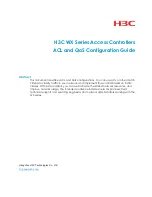
CHAPTER 9 TIMER/COUNTER FUNCTION (REAL-TIME PULSE UNIT)
264
User’s Manual U14492EJ3V0UD
Next, an example of the operation timing, which depends on the values set to CM0n0 to CM0n2 (BFCMn0 to
BFCMn2) is shown.
(a) When CM0nx (BFCMnx)
≥≥≥≥
CM0n3 is set
Figure 9-17. Operation Timing in PWM Mode 0 (Symmetric Triangular Wave, BFCMnx
≥≥≥≥
CM0n3)
t
t
CM0n3
CM0n3
a
a
CM0nx
match
CM0nx
match
BFCMnx
≥
CM0n3
BFCMnx
≥
CM0n3
a
BFCMnx
≥
CM0n3
a
INTTM0n
INTCM0n3
INTCM0n3
INTTM0n
TM0n
count value
Positive phase
(TO0n0, TO0n2, TO0n4)
Negative phase
(TO0n1, TO0n3, TO0n5)
BFCMnx
DTMnx
F/F
Interrupt request
CM0nx
0000H
Remarks 1.
n = 0, 1
2.
x = 0 to 2
3.
t: Dead time = (DTRRn + 1)/f
CLK
(f
CLK
: Base clock)
4.
The above figure shows an active high case.
When a value greater than CM0n3 is set to BFCMnx, the positive phase side (TO0n0, TO0n2, TO0n4
pins) outputs a low level, and the negative phase side (TO0n1, TO0n3, TO0n5 pins) continues to output
a high level. This feature is effective for outputting a low-level or high-level width exceeding the PWM
cycle in an application such as inverter control. Furthermore, if CM0nx = CM0n3 is set, matching of TM0n
and CM0nx is detected during down counting by TM0n, so that the F/F remains reset as is, and does not
get set.
The above explanation applies to an active high case. In an active low case, the levels of positive and
negative phases are merely inverted and other operations remain the same.
















































